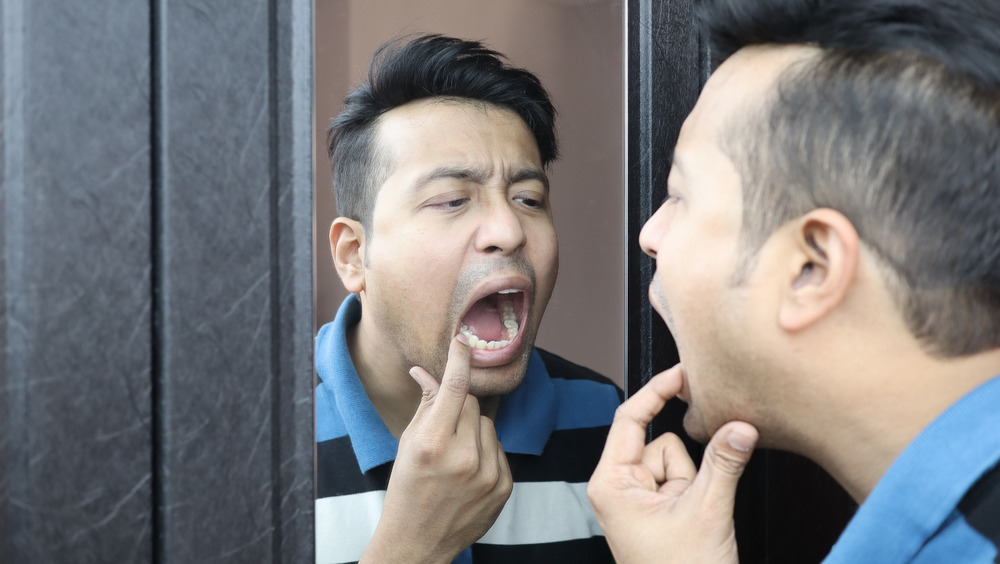When You Don't Treat Your Cavity, This Is What Happens
Cavities, also called dental caries or tooth decay, are common oral health ailments. Cavities occur when the tooth enamel, or the hard outer layer of the tooth, is broken down, according to the American Dental Association. This happens over time as the result of eating and drinking foods containing sugar, which interacts with plaque (the sticky film of bacteria on your teeth). This interaction causes the plaque to produce an acid that attacks tooth enamel — creating holes, or cavities (via MedlinePlus).
Though cavities tend to be more common in children and teens, they can occur at any age. According to the Centers for Disease Control and Prevention (CDC), tooth decay is the most common chronic illness in children and adolescents ages 6 to 19. And the National Institutes of Health reports that 92 percent of adults ages 20 to 64 have had cavities in their permanent teeth.
Treating cavities is important to prevent further damage to your teeth and gums. Treatment may involve fillings, crowns, or root canals.
Complications from untreated cavities
Cavities typically do not cause pain until later stages, such as if they've grown very large or have caused a tooth fracture. This is why it's important to get regular check ups with your dentist every six months (via Insider). If left untreated, cavities can lead to an infection called a tooth abscess. Untreated cavities can also destroy the pulp, or inside of the tooth, which requires more extensive treatment and possibly a tooth extraction.
"If cavities are not treated, they continue to grow. Eventually, the decay will grow to a point where it undermines tooth structure and reaches the nerve of the tooth. This can cause more extensive tooth damage, infection, and tooth loss," John Grbic, DMD, professor of dental medicine at Columbia University Irving Medical Center, told Insider.
To prevent cavities, make sure to brush your teeth twice a day with a fluoride toothpaste and clean between teeth with floss or an interdental cleaner. Limit sugary foods and beverages and visit your dentist regularly for cleanings and checkups.


